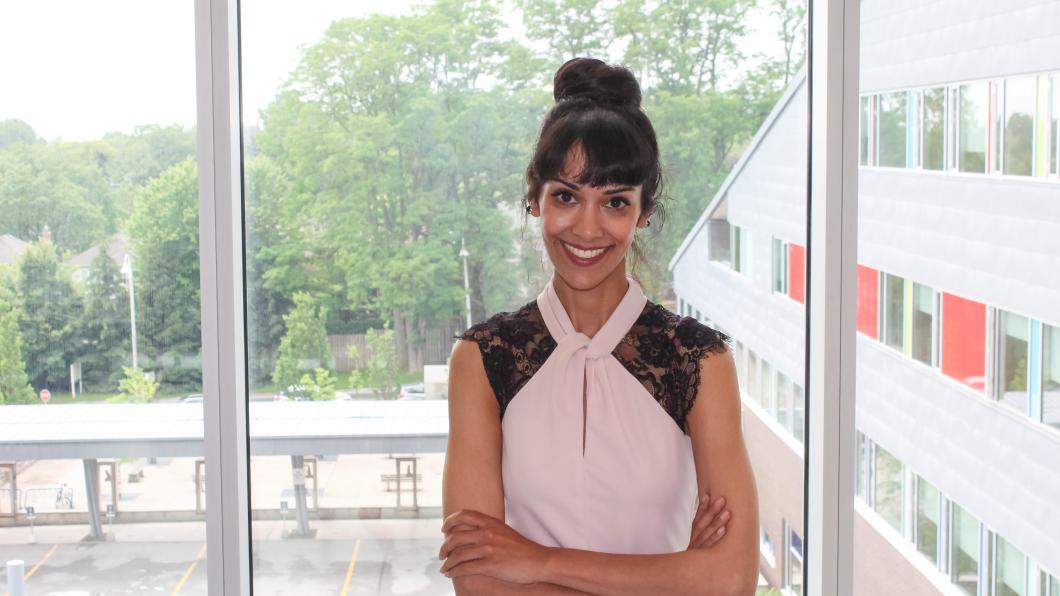
Holland Bloorview’s research institute is delighted to welcome a new addition to its team, Dr. Fiona Moola. Dr. Moola, who is spearheading an innovative research program on the psychosocial benefits of the arts in the lives of children with chronic illnesses and disabilities, will begin her role as a music and arts scientist in participation and inclusion on July 4, 2017.
Music and the arts is a vital area at Holland Bloorview that can make a tremendous impact on a child’s health care experience. Arts engagement can be a way for children to express themselves creatively, and research has shown positive health care outcomes when children with disabilities are engaged in music and the arts.
Dr. Moola sees music and the arts as a way for children with disabilities to experiment in research and express their emotions freely. In her research program at Holland Bloorview, Dr. Moola aims to incorporate music, arts, dance, and yoga as a means to improve quality of life and wellbeing among children with disabilities. Below, she talks about the importance of this unique field in health care and research.
Meet Dr. Moola
What is your personal passion behind your research? What inspires you?
Dr. Moola: My passion is to enhance the physical, psychological, social, emotional, and spiritual wellness of children with disabilities and chronic illnesses through music and the arts.I derive inspiration from many sources. I’m inspired by the children and families I work with and who have taught me so much. I’m also inspired by students, colleagues and mentors who have taught me new ways of thinking about the world. Finally, I’m inspired by history — and hugely influential historical figures — and all that history has taught us.
What do you want people to know most about your research and the real-life implications research can have?
Dr. Moola: Children with disabilities still face marginalization and exclusion in many areas of social life. For me, it’s important to be an advocate and ally by creating research programs that meet children’s and families’ needs. Through my research, my goal is to reduce barriers to participation and enhance the inclusion of children with disabilities into all aspects of social life.
How do you see the family voice impactful in research?
Dr. Moola: The family voice is critical to executing high-quality research. Speaking philosophically, I believe in the merits of family-centred care. To me, ‘researcher expertise’ goes hand in hand with the children and families that are impacted by it. They are the true experts of their own unique experience.
My role as a researcher is to create a platform for families to be heard. Families should be involved at every stage of research to create meaningful programs and services that are relevant to their lives. I look forward to working with my colleagues at Holland Bloorview to foster this process and enhance my research program for the best health care outcomes for children with disabilities.
Biography
Dr. Fiona J. Moola completed her undergraduate, masters, and doctoral degrees at the University of Toronto. During her doctoral studies, Dr. Moola explored the psychological and social dimensions of childhood chronic illnesses among children with cystic fibrosis and congenital heart disease, and their caregivers. She then embarked on a one-year postdoctoral fellowship at Concordia University, where she studied the sociological dimensions of obesity in Canada. In 2012, Dr. Moola began a five-year term as an assistant professor at the University of Manitoba. She was also a scientist at the Children's Hospital Research Institute of Manitoba. During her time in Winnipeg, Dr. Moola continued to develop a robust research program on the psychological and social dimensions of childhood chronic illnesses, grounded in health psychology and sociological studies.